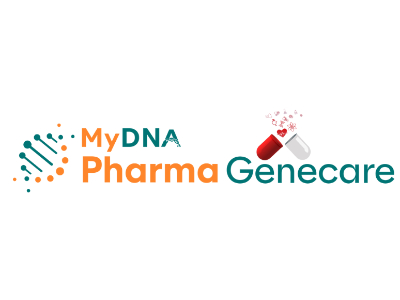
A 45-year-old female with a history of anxiety and depression has been struggling to find effective medication management. Over several years, she has tried multiple antidepressants and anxiolytics but experienced a mix of poor efficacy and significant side effects, such as fatigue, dizziness, and increased anxiety. After numerous unsuccessful attempts at finding the right medication, her doctor recommended pharmacogenomic testing to tailor her treatment.
Key Issues
- Medication Efficacy and Safety: The patient experienced limited improvement with multiple medications while enduring adverse effects.
- Trial-and-Error Prescribing: Repeated medication switches without clear guidance led to frustration and a prolonged untreated state.
- Patient Quality of Life: The ongoing medication trials and adverse effects led to worsening mental health and reduced daily functioning.
Pharmacogenomic Testing and Its Role
The patient underwent pharmacogenomic testing, which analyzed several genes known to influence drug metabolism and response, including:
- CYP2D6 and CYP2C19: Genes encoding enzymes involved in metabolizing many antidepressants.
- SLCO1B1: Associated with drug transport and can impact statin-related muscle toxicity.
- SLC6A4 (serotonin transporter gene): Variants of this gene are linked to response variability in selective serotonin reuptake inhibitors (SSRIs).
Test Findings
The pharmacogenomic test revealed:
- CYP2D6 Poor Metabolizer: The patient had a genetic variant resulting in reduced CYP2D6 enzyme activity, leading to slower metabolism of certain antidepressants, such as tricyclic antidepressants (TCAs) and SSRIs like fluoxetine. This explained the side effects she experienced even at lower doses.
- CYP2C19 Ultra-Rapid Metabolizer: Increased enzyme activity for this gene meant she metabolized certain SSRIs, like citalopram, too quickly, leading to subtherapeutic levels and reduced efficacy.
- SLC6A4 L/L Genotype: This genotype is associated with a better response to SSRIs, but given the patient’s metabolism profiles, conventional SSRIs may not be optimal.
Clinical Outcome
Based on these results, the patient’s provider switched her medication to venlafaxine, an antidepressant metabolized primarily through pathways that were not impacted by her CYP2D6 or CYP2C19 status. The dosing was also adjusted to account for her pharmacogenomic profile.
Within weeks, the patient reported a marked improvement in her anxiety and depression symptoms with minimal side effects. Over the following months, she continued to improve with no need for further medication changes. Her quality of life and daily functioning returned to near-normal levels.
Summary and Recommendations
Pharmacogenomic testing provided crucial insights into this patient’s unique drug metabolism profile, allowing for personalized adjustments to his medication regimen. The intervention led to better treatment outcomes and fewer side effects, demonstrating the value of integrating pharmacogenomics into clinical practice.
Next Steps:
- Continued monitoring and possible updates to the medication plan as new pharmacogenomic data become available.
- Consideration of pharmacogenomic testing for close family members who might share similar metabolic profiles.
This case highlights how targeted pharmacogenomic testing can lead to significant improvements in personalized care, particularly in patients with complex medication needs.